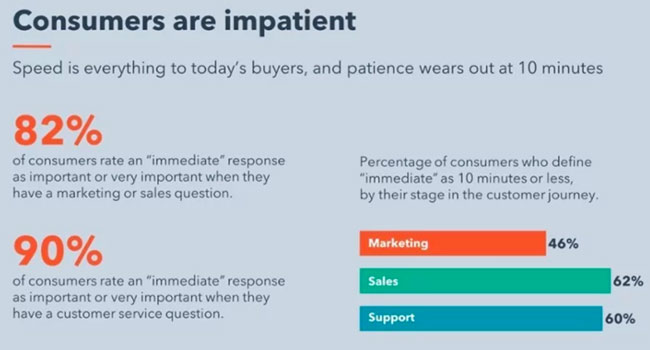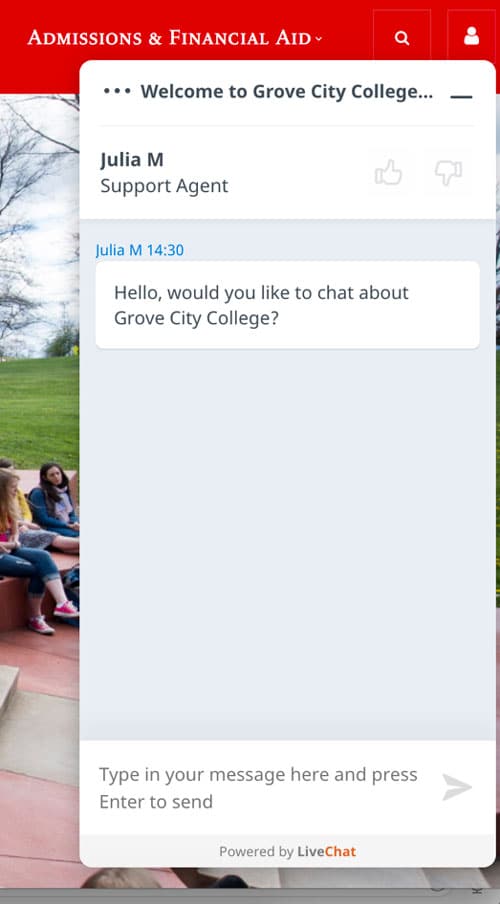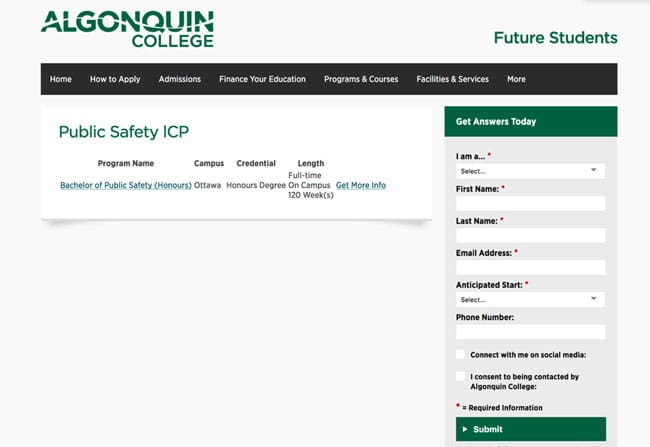The business case for immediate response: benefits of and strategies for live chat
In the all-important quest to provide the best online experience for prospective students and their parents, educators and agents are turning to live chat, which allows them to respond in real-time to inquiries received on their websites.
What are the benefits of adding live chat to the arsenal of ways to improve customer experience?
Instant: We all know what we’re like as online shoppers: We want to accomplish things quickly and with ease. Waiting seems torturous, and “waiting” is often measured in seconds rather than minutes. Live chat often has an edge over email because it is a more instant ask-and-answer format.
Even four years ago, research found that 42% of customers preferred live chat to email (23%) and social media or forums (16%). Hubspot has found that customers expect a response within 10 minutes from the time they send their inquiry, a finding that reinforces the need for quick response times in recruitment.

Easy: Students and parents do not need to compose an email – they need only to pop one- or two-line questions into chats. This can be really important when your audience isn’t proficient in the language used by your institution; it removes the significant barrier of embarrassment about language errors and increases the likelihood that they will ask questions.
Geared to today’s multi-taskers: Students and parents can explore your website as they chat with you, something they can’t do with email. It’s a more immersive, complete experience that happens right when their interest is at its peak (i.e., as they’re browsing your programmes and benefits).
Reduces confusion: Sending a student to a far-off land and institution involves enough logistical hassles without website content and/or navigation adding to any confusion. This kind of confusion can even deter your prospects from continuing to research an institution. A live chat cue placed prominently on the most popular pages international students check out (website analytics should reveal which these are) can be a speedy way to deal with any barriers that prospects are experiencing on the site. Ideally the cue would be a “proactive” chat., i.e., a chat box that appears on a page after seconds to a minute of the visitor’s arrival on a site and invites them to engage.

The differences between proactive and reactive live chat
Proactive live chat is a more intrusive (but not in a bad way, if done well) chat function, while reactive chat – in which a little box usually placed in the bottom right of a webpage is there for users to click on if they like – is more passive, but still useful.


BusinessArticles.com summarises the difference like so:
“Reactive live chat is there when the customers ask for it. Proactive, on the other hand, occurs when the communication is initiated by the chat operator, who offers assistance before the visitor has requested help.”
Proactive chat tends to have a higher conversion rate than reactive chat, with customers 6.3x more likely to make a purchase than those who were not approached via this kind of chat service. And Forrester research has found that that while reactive chat services produce a return on investment (ROI) of 15%, investing in in proactive chat can generate an additional 105% ROI.
How to get started
Impact.com provides an excellent starter guide for businesses seriously considering adding live chat functionality to their website.
CrazyEgg.com reviews top live chat services and explains the differences and pricing – which can vary substantially – for each. Liveadmins.com, for example, is a live chat service specifically for the education industry.
ReveChat.com outlines which words are ideal to use in scripts – i.e., the programmed text messages that will show up for users in chats – and which should be avoided.
Dealing with different time zones
Some schools and universities state which hours they host live chats, which is a good solution for international students’ different time zones. The University of Adelaide uses this strategy.

If you can’t add live chat to your website
If resources are too stretched at the moment to consider adding live chat functionality, there are still ways to assure students and their families that their questions are important and that someone will get back to them as fast as humanly possible. For example, Algonquin College in Canada offers a form that tells users that they will “Get Answers Today.”

For additional background, please see:
















